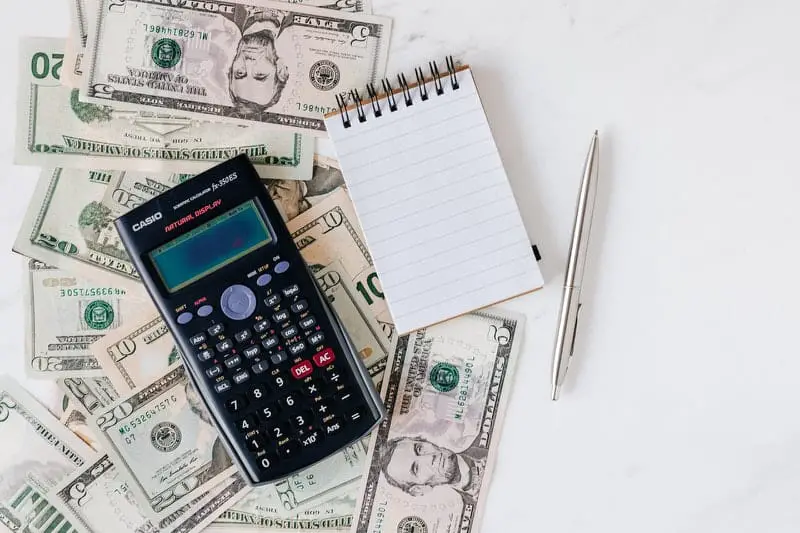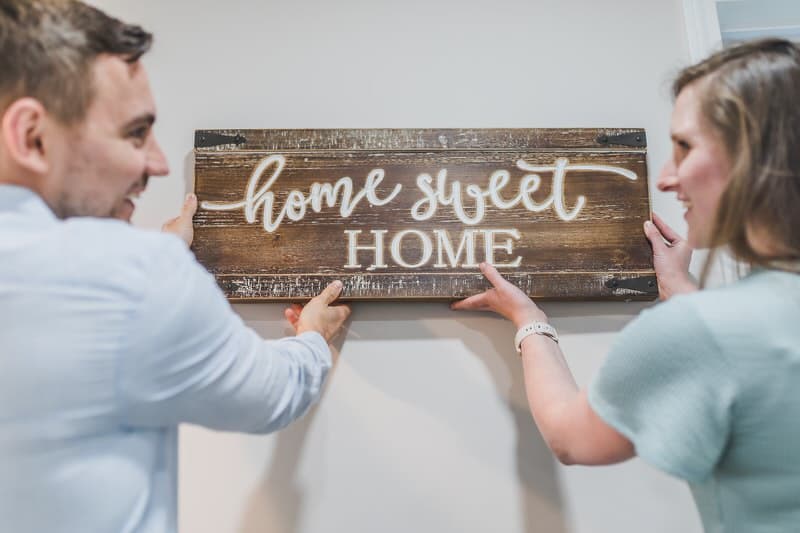Your first encounter with the real estate market might raise some questions, especially if you’re looking to buy a house on an average income. House prices are going up, but income is not changing as much.
If you haven’t been attentive to your personal finances, you might wonder how do people afford houses?
The downpayment on an average house is not a small sum. With student loans, an average income, and rent, saving over $30,000 is hard. For some, it’s even impossible. But many manage to save up, so what’s the secret?
You have to choose your battles. You either opt for a smaller downpayment and more significant monthly mortgage payments; or sacrifice luxuries and live frugally for a couple of years.
Either way comes with high responsibility and requires you to have the right drive.
Most people choose more affordable housing, switch to a 10% downpayment on the house, and use a 30-year mortgage to have lower monthly payments. Others use government loans that require no downpayment but are intended for rural areas. While this is not ideal, it’s the standard way young people with no significant savings choose to do.
How Much Do Houses Cost

The best way to get disappointed that you can’t afford a house is to look way beyond your means. Smart people buy homes that they can afford.
After purchasing a place, you need to have some cash leftover, do not dip into your emergency money, and manage to make payments on time.
A median house in the US costs $200,000. An average downpayment on this house is $40,000. This is the part where most people get frustrated. You need to understand that not everyone buys homes of $200,000 and upwards.
Young people need to look at houses as investments. You can buy a $75,000 home, save up, sell it and upgrade in a couple of years.
Buying a house is a great decision, but it’s not forever. A downpayment of $15,000 is way more manageable for a couple on a $35,000 income.
How People Save For A Downpayment

Downpayment is a scary word. It usually means a large lump sum that you’d think people get out of nowhere.
But, while some might be more privileged than you and got the sum from parents or inheritance, others work hard and manage to save.
Here are some ways people manage to save for a downpayment even in their 20s.
Live Below Your Means
Depending on how hard you want something, you make drastic sacrifices. If you’re struggling with low income, living below your means can seem desperate, but it’s one sure way to save money.
It starts with giving up your car, gym membership, and indulgences. Then, to live more frugally and save over $100 a month, try cutting luxuries like cable, subscriptions, shop seasonally, and look for loyalty discounts.
The average US household spends $2,482 a year on entertainment and $387 per month on groceries. This doesn’t include eating out. So buying store-brand groceries and opting for free entertainment can add a significant percent to your downpayment savings.
Debt Pay Off
Not having the burden of debt is ideal, so before looking for a house, think of debt payoff first. This will improve your debt to income ratio, improve your credit score and help you get a better deal when choosing a loan.
A debt to income ratio of 20% is ideal, but anywhere up to 40% is manageable. This means you shouldn’t have over 40% of your income going to debt and bills.
Student debt, as one of the most common among millennials, can set you back. However, people who afford houses in their 20s to 30s are commonly debt-free or have a debt payoff plan.
Try to repay personal loans, car loans, and other debt before thinking about buying a home.
Side Jobs
To save $15,000 a year, you need to save $312 a week. A side job that pays at least $20 an hour can help you save for a house without touching your primary income.
Some good-paying side jobs are virtual assistant, Uber driver, delivery, customer service, or anything your profession is; just do it freelance.
Building some assets on the side can help you dive into the investment world too.
Types Of Home Loans

Specific mortgage programs can help first-time homebuyers defeat hurdles like low credit or income, smaller down payments, or high debt levels.
Some good first-time homebuyers include Freddie Mac’s Home Possible mortgage, Fannie Mae’s HomeReady mortgage; the Conventional 97 mortgage; and government-backed loans like FHA, USDA, and VA.
First-time homebuyers can also apply for down payment assistance grants through their state or local housing department.
Low Income Home Loans
If you’re struggling with low income can choose from 9 different loan programs, you just need to check which one you qualify for:
- HomeReady and Home Possible – both programs help low-income buyers get a low downpayment, just 3% of the house’s price;
- USDA home loan – for those that don’t have any money for a downpayment, this program allows them to buy a house with 100% financing;
- VA home loan – a program created for military home buyers without taking their credit score in mind or needing a downpayment;
- FHA home loan – a program for those struggling with high debt and low credit score;
- Good Neighbor Next Door – this program is created to help public servants like firefighters, nurses, teachers, doctors, etc. to make great savings;
- HFA home loans – these loans are given in combination with state and local housing authorities;
- Down payment assistance – these are local grants or loans that provide support to home buyers with lower income and those in ‘underserved’ areas. They provide help with downpayment and possible closing costs.
- Mortgage Credit Certificates – An MCC can provide a tax credit equal to some portion of your mortgage interest payments.
Get Help For A Downpayment

It’s not uncommon for young people to ask for input from family when buying their first home. Here are some ways you can ask for help.
Gifts And Loans From Family
In 2019, more than a quarter of homebuyers aged 28 years and younger used a gift from family or friends to manage their downpayment. Of those aged 29 to 31, 21% used gifts.
Clearing the downpayment is a huge help, but it comes with a load of documentation.
First, your helper needs to verify in writing that they made the gift and have the means to do so.
If it’s a loan, you have to settle the repayment terms by calculating your debt-to-income ratio.
Beware that lenders have a different view of borrowers who rely exclusively on gifts from family members, meaning they may be unprepared for the total cost of owning a home.
Crowdfunding
Some websites allow you to set up an online profile to raise money for your downpayment, like FeatherTheNest.com and HomeFundIt.com.
For example, Feather The Nest works like a gift registry where donations to your down payment can be sent to a linked bank account. It’s ideal for newlyweds or freshly engaged couples.
To use the HomeFundIt service, you need to get prequalified for a mortgage from CMG Financial first, and then you can use its crowdfunding tool to fund your downpayment.
Retirement Account Withdrawals
Dipping into your retirement savings is not ideal, but it’s an option when you can’t manage to save a significant sum, but this option should be approached with caution.
401k allows you to make early withdrawals or loans before the age of 59 1/2. You’d need to pay income taxes and an additional 10% tax penalty on an early withdrawal.
If you take out a loan, you’d need to repay the sum and interest to avoid income tax and a liability. Most 401k plans allow up to 5 years of loan repayment for a primary home.
Beware, if you leave your job, you’d need to repay the loan or get rolled into another retirement account by the next tax filing deadline. Otherwise, you’ll pay taxes and penalties on the borrowed money.
Traditional IRA allows up to $10,000 first-time home purchase withdrawal. However, you’ll pay income taxes on the withdrawn money. Roth IRA withdrawals are way better; they’re tax-free for a first-time home purchase if you’ve had the account for at least five years.
FAQs

What salary do you need to afford a house?
You can afford a house even if you’re making $35,000 a year and have a low debt-to-income ratio. But, of course, it will be a $50,000 to $75,000 house, nothing too lavish.
Can I buy a house making 40k a year?
Making $40,000 after-tax a year and saving just 20% of it means you’d have $32,000 for a downpayment in just 4 years. You’d be able to afford a house up to $320,000.
What is a good credit score?
A credit score from 580 to 669 is considered fair; 670 to 739 is considered good, while 740 to 799 is considered very good. Anything above 800 is an excellent credit score.
Bottom Line
Don’t dwell over people who can afford nicer and more upscale houses than you. Everyone’s back story is different; while some worked hard, others got generous help.
Putting less than a 20% downpayment is not ideal, but it’s a good starting point. It can motivate you to work upwards for a better, bigger, and more expensive house.
By saving, investing, and educating yourself about managing your personal finance, you too will be able to afford a lovely place to call home.

